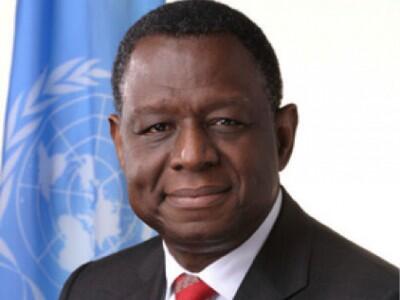Dr. Babatunde Osotimehin
United Nations Under-Secretary-General and Executive Director
UNFPA, the United Nations Population Fund
The teenage years are for some girls a time of exploration, learning and increasing autonomy. But for many others, it is a time of increasing vulnerability and exclusion from rights and opportunities, or just plain discrimination.
When a teenage girl has the power, the means and the information to make her own decisions in life, she is more likely to overcome obstacles that stand between her and a healthy, productive future. This will benefit her, her family and her community.
When she has no say in decisions about her education, health, work or even marital status, she may never realize her full potential or become a positive force for transformation in her home, community and nation.
In some parts of the world, a girl who reaches puberty is deemed by her family or community as ready for marriage, pregnancy and childbirth. She may be married off and forced to leave school. She may suffer a debilitating condition, such as fistula, from delivering a child before her body is ready for it. She may be denied her human rights.
Governments everywhere need to invest in teenage girls in ways that empower them to make important life decisions and equip them to one day earn a living, engage in the affairs of their communities and be on an equal footing with their male counterparts.
Investments are needed to protect their health, including their sexual and reproductive health, to enable them to receive a quality education and to expand economic opportunities, including those for decent work.
A teenage girl whose rights are respected and who is able to realize her full potential is a girl who is more likely to contribute to the economic and social progress of her community and nation.
***


